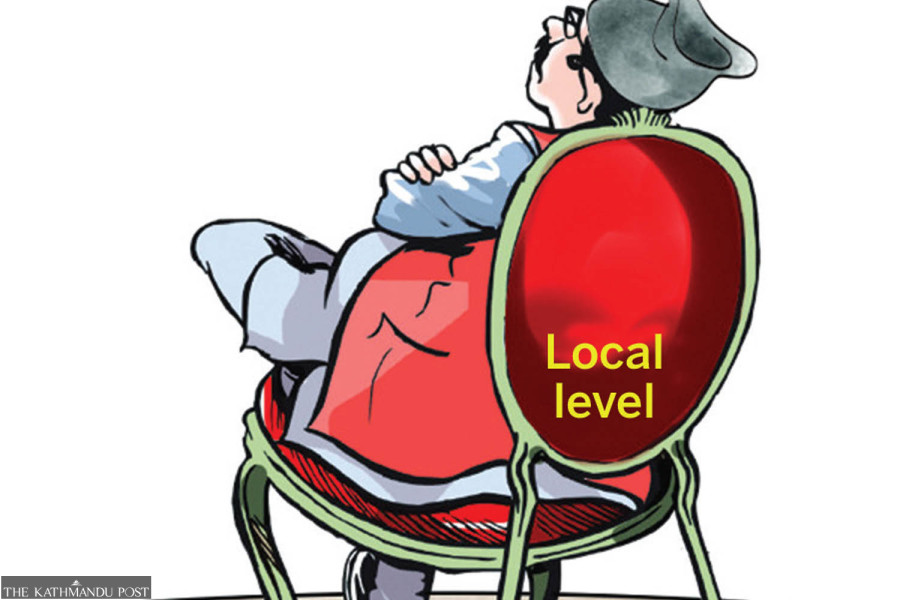Editorial
Saving local bodies
It is troubling that many local units are struggling even to bring their budget on time.
Effective functioning of local level bodies has thus far been one silver lining of Nepal’s six-year experiment with a three-tier federal setup. Basic services like access to citizenship and birth and death certificates have reached people’s doorsteps. Local bodies around the country have also successfully acted against social ills like alcoholism and low school enrolment of girls. They are thus seen as a success, at least in comparison with the federal setup and the provinces, the two other components of the three-tier structure. While the federal level politicians and lawmakers are being sucked into corruption scandals and are accused of trying to centralise powers, their provincial level counterparts are blamed for doing next to nothing. Just as in the centre, systemic corruption continues to be a huge problem out in the provinces. This is why the relative success of the local units is something to be celebrated. But at the same time, it is troubling that many local bodies are struggling even to bring their budget on time; if the local level is also seen as a failure, the scepticism of federalism will further grow and more ground will be created for populist forces that want to undo all of the country’s recent progressive changes.
One of the big problems at the local level is that the constitution does not envision ruling and opposition parties there. In fact, the parties are expected to work together for local development. But it is seldom the case that political parties of different persuasions and with different interests easily cooperate. Instead, as we see, in many local units, whenever a mayor or chairperson of one party tries to bring a programme, members of other parties invariably oppose them. Take the example of Kanchanrup Municipality in Saptari district that has missed its deadline to bring its annual budget for the fiscal year 2023-24. Both its mayor and deputy mayor are from the Nepali Congress. Yet the mayor complains that he has still been unable to bring a budget as it is the CPN-UML, the main opposition, which has a majority in the municipal executive body. Many local units of Madhesh province, where a quarter of the local units are yet to unveil their budget, face even more problems. As Ashok Kumar Jaisawal, an executive committee member of the National Association of Rural Municipalities in Nepal, puts it, many elected representatives in Madhesh cannot write an application or even introduce themselves properly—much less govern their unit.
The solutions to these problems are not difficult. One, stronger punitive measures are needed against local units and heads that fail to bring a timely budget, not the least because they are breaking the law. For instance, the budgets for offending local units can be suspended for the next fiscal year. In addition, there is also an urgent need to make local level representatives well versed in the language of governance and administration. They can hardly be expected to do their job well, including in the all-important duty of budget making, if they don’t have even the basic credentials to govern. Such interventions are vital. The country cannot afford the failure of arguably the most vital of the three levels of its federal structure.




 17.12°C Kathmandu
17.12°C Kathmandu













